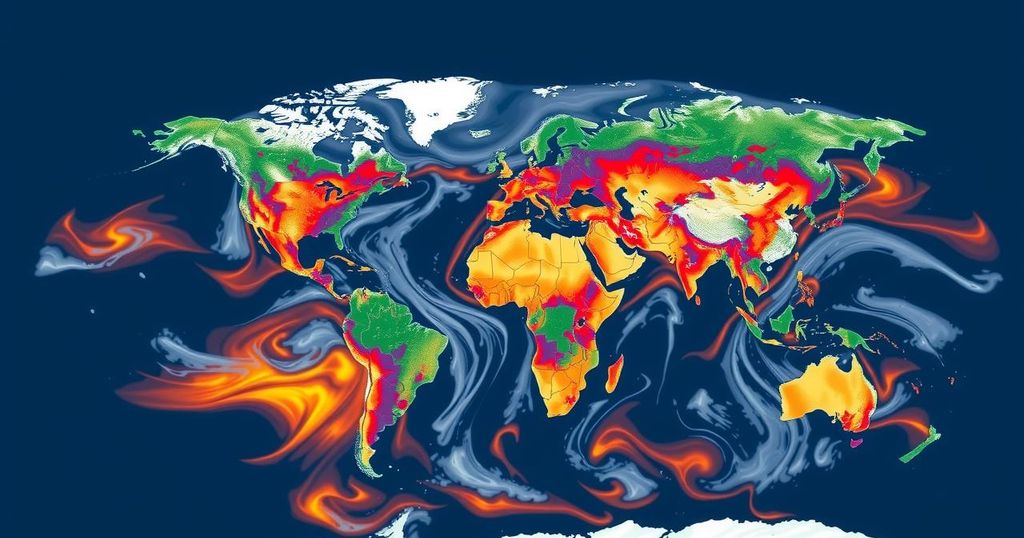Mapping Climate Change’s Influence on Extreme Weather Events

Climate change’s impact on extreme weather has been mapped through over 600 studies, revealing that 74% of events are made more likely or severe by human activities. Regions in Europe and North America dominate the studies, while efforts are being made to address research inequities globally. This field of study is essential for understanding and mitigating the impacts of climate change.
In recent years, the impact of climate change on extreme weather events has been quantified through a scientific field known as extreme event attribution. This field gained prominence with the publication of a pioneering study in 2004, which determined that human-induced climate change had significantly increased the risk of the deadly heatwave that struck Europe in 2003, resulting in over 70,000 fatalities. The research has since expanded, allowing scientists to assess how climate change influences the intensity, frequency, or severity of various extreme weather occurrences, such as droughts, floods, and storms. An interactive map created by Carbon Brief now showcases over 600 studies on the link between climate change and nearly 750 extreme weather events. The data reveals that approximately 74% of these instances were made more severe or likely due to human influence, while 9% showed a decrease in severity. This comprehensive analysis indicates that a substantial majority of recorded extreme weather events can be attributed to anthropogenic climate change, underscoring the urgency of addressing climate issues worldwide. This mapping initiative highlights the overwhelming evidence that correlates climate change with rising extreme weather occurrences. In particular, heat extremes account for more than a third of studied events, emphasizing their straightforward association with global warming. Methodological advancements have accelerated research, allowing for rapid studies that can report findings soon after an event occurs. Recent examples include assessments of the heavy rains that triggered landslides in Kerala, India, and the significant death toll from the summer heatwave in Switzerland. Despite the extensive coverage of climate-related extremes in affluent regions, there remains an inequitable distribution of research efforts across the globe. Much of the attribution research is concentrated in Europe and North America, while central and southern Asia, Oceania, and northern Africa remain largely underrepresented. This lack of data limits the understanding of climate change’s effects in less-studied regions. However, recent rising temperatures and extreme weather in China have led to a notable increase in attribution studies focused on the country, with over 114 recorded cases. As climate science continues to evolve, the integration of impact attribution studies is becoming increasingly indispensable. These studies provide crucial insights into the social, economic, and ecological ramifications of climate-change-induced extreme weather events. Moving forward, further initiatives must endeavor to rectify the geographical disparities in research, ensuring that all regions are adequately studied and understood in the context of climate change.
The study of extreme event attribution has emerged as a critical area in climate science, focusing on how human activities contribute to extreme weather phenomena. Initiated by findings from a research team that highlighted the exacerbation of the 2003 European heatwave, this field has grown to encompass a wide variety of weather events across the globe. Recent advancements have expanded the number of attribution studies significantly, allowing for a more nuanced understanding of how climate change influences different weather patterns and trends.
The evidence gathered through numerous attribution studies reveals a compelling relationship between climate change and extreme weather, with the majority of analyzed events showing increased likelihoods and severity due to human influence. As research progresses, addressing the disparities in study focus across different global regions will be essential for a comprehensive understanding of climate impacts. Enhanced methodologies, such as rapid studies, are paving the way for more timely assessments, ultimately contributing to more effective climate action strategies.
Original Source: www.carbonbrief.org







